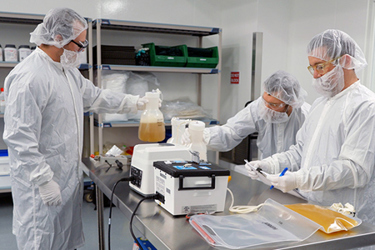How To Develop Reliable, Repeatable Microbial Processes At Any Scale
By Levi Clark, Brian Samuelson, and Rachael Rossi, AGC Biologics

A growing focus on next-generation biologics that do not require post translational modifications to occur during protein expression is reinvigorating interest in microbial fermentation. Microbial production presents unique challenges compared to mammalian and requires specialized capabilities to ensure effective process reproducibility.
Microbial manufacturing development challenges are common among manufacturers, rooted in three key difficulties. First, researchers must develop a strain that maximizes expression while minimizing product-related impurities. Next, fermentation development must maximize scale-up efficacy and limit process-related impurities. Finally, midstream development must lead to high process yields that are consistently predictable through the use of small-scale studies.
Developing robust and scalable microbial fermentation depends on a careful balance of optimizing the growth and expression phases. This is achieved through efficient oxygen transfer, as well as fine-tuning of nutrient delivery and induction of protein expression. Oxygen transfer must be sufficiently robust for the desired growth rate controlled by nutrient delivery, and the induction strategy must select an appropriate concentration, duration and temperature to maximize quality product.
Get unlimited access to:
Enter your credentials below to log in. Not yet a member of Outsourced Pharma? Subscribe today.
